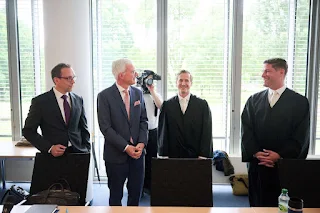A German court rejected a decade-old climate case filed by a Peruvian farmer against the Energy Giant RWE on Wednesday, due to which the efforts to assign individual corporations for climate damage across international boundaries.
 |
| German court rejects Peruvian farmer's climate suit against RWE |
High Regional Court decided that Saúl Luciano Lliuya failed to prove that his property has a immediate threat to the glacial flood, so that in order to pay the German utility for flood safety measures near his house in Huaraz, Peru Their effort to compel the effectively.
A Decade-Long Legal Battle
Lliuya, a farmer and climber guide, filed its lawsuit in 2015, in which the argument was argued that the historic greenhouse gas emissions of RWE's contributed to melting glacier in Andes, which one above their hometown The threat of flood increased by Glacial Lake. They demanded approximately € 13,000 for protective measures for their property - which is 0.38 percent part according to the calculation of RWE in global emissions.
This case was escaped from being rejected and in the evidence phase in 2017, so that the German judges were motivated to travel to Peru in 2022 so that they can directly check. Environmental Organizing Germanwatch, who supported Liya in the entire proceedings, told it to "the sole lawsuit of the world that demands corporate liability for climate risks, which has reached the evidence phase"
Competing Visions of Climate Accountability
The experts appointed by the court eventually concluded that Lliuya property was inadequate to establish an adjacent threat under the German law, which was the possibility of the risk of flood. RWE argued during the proceedings that the lawsuit tried to maintain an impractical example. The company argued, "If such a claim under the German law was present, every driver could also be held."
RWE emphasized that he has always worked under the national rules and has dismissed the concept of personal corporate climate liability. The company warned that the success of Lliuya will be "unexpected results for Germany as an industrial location"
Legal Precedent Remains Elusive
Despite the defeat, climatic advocates gave importance to the court's desire to investigate the evidence, the International Environmental Law Center said this matter "a legal spark to accelerate the discovery of climate justice". However, the RWE celebrated the dismissal as a confirmation that under the German law, the efforts to "fail" to be responsible for the individual companies responsible for global climate impact.
This decision has not been resolved to the basic question related to Lliuya: Can major emitters be bound to provide financial assistance to people affected by climate change in proportion to their contribution in global temperature?


Comments
Post a Comment